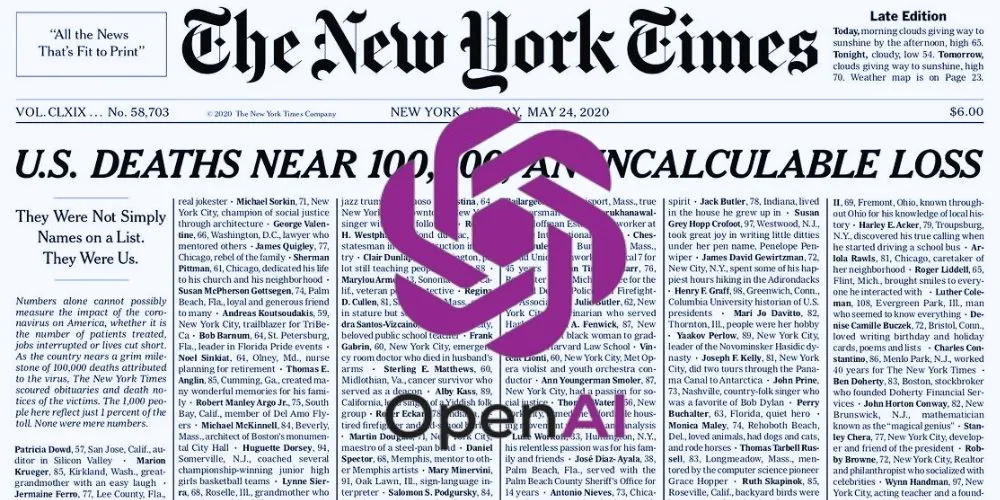In a significant development, The New York Times has taken legal action against OpenAI and Microsoft, filing a copyright infringement lawsuit in the Federal District Court in Manhattan. The lawsuit alleges that the companies, creators of widely-used AI platforms like ChatGPT, have violated copyright laws by using millions of articles from The New York Times to train their automated chatbots. The lawsuit marks the first instance of a major American media organization suing prominent AI brands over copyright issues related to their written works.
The complaint contends that Microsoft and OpenAI’s unauthorized use of The Times’ content to train AI products directly threatens the newspaper’s ability to offer unique services. While the exact monetary demand is unspecified, the lawsuit suggests that the defendants should be held responsible for “billions of dollars in statutory and actual damages” associated with the “unlawful copying and use of The Times’s uniquely valuable works.” The legal action also calls for destroying any chatbot models and training data utilizing copyrighted material from The New York Times.
OpenAI and Microsoft have not yet responded to the lawsuit.
This legal challenge could have far-reaching implications, testing the legal boundaries surrounding generative AI technologies and their use of copyrighted material. The Times’ move underscores growing concerns in creative industries about AI systems’ uncompensated use of intellectual property, particularly in natural language processing.
The lawsuit contends that Microsoft and OpenAI sought to “free-ride” on The Times’ substantial journalistic investment by utilizing its content without proper compensation, ultimately creating products that compete with and divert audiences from the newspaper. The lawsuit highlights the potential competitive edge of AI systems like ChatGPT in the news business, posing a threat to traditional media outlets.
As AI technology continues to evolve, legal battles over the use of online content for training AI models are likely to intensify. This case could set a precedent for how intellectual property rights are protected in the rapidly advancing landscape of artificial intelligence. The outcome may influence the practices of AI developers and prompt broader discussions on the ethical and legal dimensions of using copyrighted material for training AI models.





